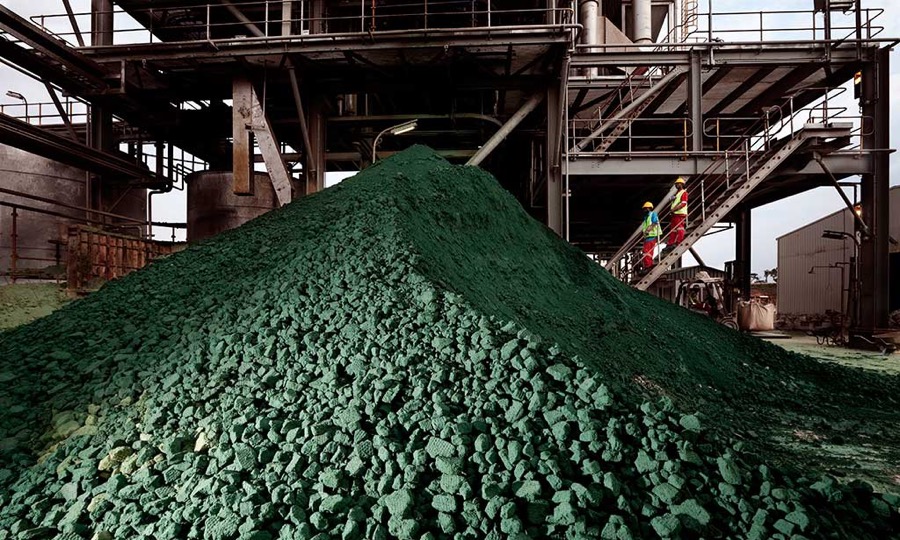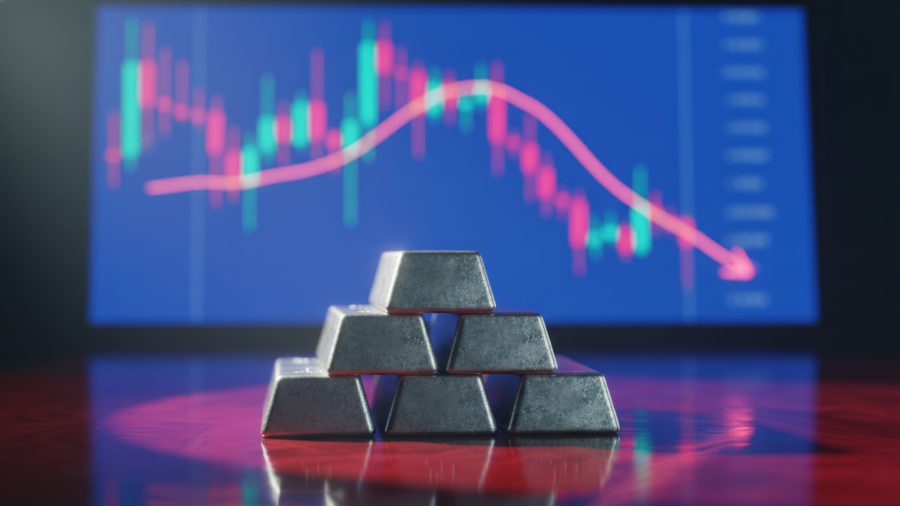Chinese mining deals under review as Congo targets windfall profits

The Democratic Republic of Congo wants a mining deal it signed with China more than a decade ago to be reworked, with a view to securing all the funding that was pledged for infrastructure projects and a share of windfall profits.
A review of the 2008 minerals-for-infrastructure contract that includes the Sicomines copper-cobalt mining project should ideally be concluded by year-end, Congolese Prime Minister Jean-Michel Sama Lukonde said in an interview in Sharm El-Sheikh, Egypt, during the COP27 climate summit. Additional payments were warranted because the project was making super-profits due to a surge in commodity prices, he said.
Sicomines produced 155,630 tons of copper and 886 tons of cobalt in 2020, government data show. China has spent about $900 million on infrastructure so far, well short of what was required in the agreement, according to Lukonde.
“When we look at the balance, it looks like they have taken more minerals than what has been built in terms of infrastructure,” he said. “We have to quickly point out some new projects on our side in terms of infrastructure so that that balance can be reduced.”
Congo has another dispute with a Chinese company involving the giant copper and cobalt mine, Tenke Fungurume Mining SA. The wrangling has global connotations because Congo’s significant reserves of cobalt, copper and lithium make it a key supplier of minerals needed to transition to cleaner forms of energy.
The 2008 accord was signed at a time when Congo was emerging from decades of instability and newly elected President Joseph Kabila was desperate for financing. It provided for China to invest $3.2 billion in a copper-cobalt mine and another $3 billion in transport links and other projects that would be funded with revenue generated from the mine.
The deal gave Chinese companies a stake in Congolese resources — including the world’s largest cobalt deposits and Africa’s second-biggest copper reserves — in exchange for helping address a massive infrastructure deficit in a country the size of Western Europe. President Felix Tshisekedi’s administration, which took office in 2019, has however criticized the terms as being heavily weighted in favor of the Chinese.
Sicomines officials and the Chinese Embassy and ambassador in Congo didn’t respond to emails and text messages seeking comment. China Railway Group, which holds a controlling stake in Sicomines, didn’t respond to emails and faxed questions.
Lukonde said Congo wanted its share of windfall tax in cash rather than in the form of additional infrastructure investment — a proposal that’s yet to be decided on — to enable it to address pressing economic and security challenges in the east of the country.
“In terms of infrastructure, they are very open,” he said. “We really just have to quickly fix all the projects that need to be done, and it will be done. In terms of the profits, they are suggesting that maybe we could add it to the infrastructure.”
Congo’s government also aims to resolve an impasse at Tenke, a copper-and-cobalt joint venture between China’s CMOC Group Ltd. and Congo’s state-controlled Gecamines, by year-end. Exports from the mine were blocked in July by a court-appointed temporary administrator who was tasked with resolving the differences between its shareholders.
Recent audits of the Tenke’s reserves showed the project had bigger potential than previously estimated and additional payments may be due to Gecamines, Lukonde said, citing correspondence with the state company. Gecamines wants CMOC to revalue the assets, but that issue and differences over a contract that determines the revenue due to the Congolese company have yet to be resolved, he said.
Vincent Zhou, a CMOC spokesman, said production has continued at the mine and the company has filed a complaint with Congo’s customs agency and the ministry of finance. CMOC will make royalty payments according to its contract and based on feasibility studies of economically viable reserves approved by Congo’s mines ministry, he said in an emailed response to questions last week.
While CMOC is aware that Congo may need to raise additional funds and the company is ready to discuss payments based on “potential additional reserves in the future,” it wouldn’t accept “any wild overcharges that are groundless in either legal or contractual terms,” the spokesman added.
Besides having vast reserves of minerals needed to transition to cleaner forms of energy, Congo also has the world’s largest tropical peatlands, which store three years of annual global carbon emissions, and is home to the world’s largest tropical rain forest after the Amazon. While the government has pledged to play its role in tackling global warming, it has also reserved the right to develop its resources to serve its own interests.
Congo is aware that its potential to absorb carbon, generate hydropower and produce key minerals offers solutions to global problems, but the countries that are responsible for the current climate crisis also need to play their part, Lukonde said.
(By David Malingha, with assistance from Michael J. Kavanagh, Winnie Zhu, Martin Ritchie and Chris Miller)
Read more: Chill on China investment creates ‘gap’ for Canada miners, lithium CEO says
More News
{{ commodity.name }}
{{ post.title }}
{{ post.date }}




Comments
Kevykevy
Australian company Sundance suing govt of Congo over an Iron ore deposit